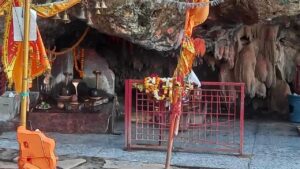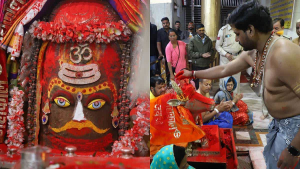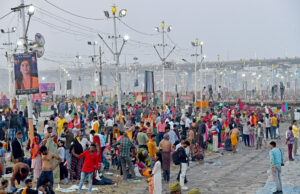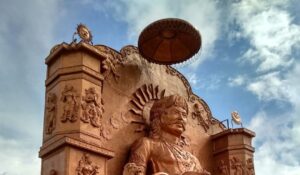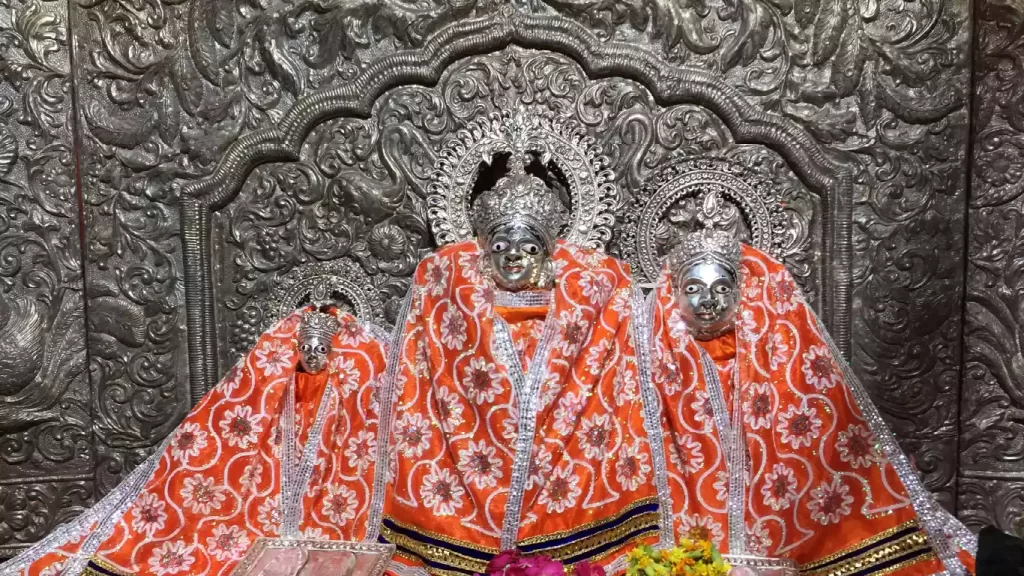
A nationwide uproar has emerged following the discovery of animal fat in the laddus distributed as prasad (sacred offerings) at the renowned Tirupati Balaji temple. This revelation has sparked widespread concerns regarding the purity of offerings in Hindu temples.
In light of this controversy, Shiv Murat Mishra, the chief priest of Prayagraj’s esteemed Lalita Devi temple, has enacted a ban on the offering of sweets, including laddus and pedas, in several major temples across Prayagraj. Devotees are now encouraged to bring alternative offerings such as coconuts, fruits, and dry fruits.
Mishra has also announced plans to establish shops within temple premises to provide devotees with pure, uncontaminated sweets. These shops aim to ensure that the sweets available for offerings in the temple meet the highest quality standards.
Echoing these concerns, Yamuna Puri Maharaj, the chief patron of the Alopi Shankari Devi temple in Alopibagh, has similarly banned the offering of sweets brought from outside, in light of the ongoing controversy. The Alopi Shankari Devi temple is one of the 52 Shaktipeeths.
Mahant Sridharanand Brahmachari Maharaj, head of the Mankameshwar temple, has also responded to the laddu controversy by prohibiting outside sweets from being brought into the temple until further notice. A formal request has been sent to the local collector for an investigation into the sweets sold outside the temple, ensuring they meet purity standards. Until the investigation results are available, devotees will not be allowed to offer any sweets within the temple.
In response to the growing concerns about impure sweets, several temples in Prayagraj have announced plans to prepare prasad in-house. Temples such as Alopi Shankari Devi, Bade Hanuman, and Mankameshwar have implemented restrictions on the types of sweets that can be offered.
Mahant Balbir Giri Ji Maharaj, head of the Bade Hanuman temple and Srimath Baghambari Gaddi, stated that once the construction of the temple’s corridor is completed, the temple management will take responsibility for preparing laddus and pedas for offerings. This initiative aims to ensure that only pure and uncontaminated prasad is distributed to devotees.
The issue began when animal fat, including beef tallow, pig fat, and fish oil, was detected in the laddus offered as prasad at the Sri Venkateswara Swamy temple in Tirupati. A food testing laboratory in Gujarat confirmed the presence of these impurities, leading to outrage among devotees and religious leaders. Telangana Chief Minister Chandrababu Naidu has accused the previous YSR Congress government of being responsible for the adulteration. The matter has escalated to the Supreme Court, with the central government seeking an explanation from the Telangana government regarding the adulteration of the Tirupati laddus.
This controversy has not only raised questions about the sanctity of temple offerings but has also prompted several temples across India to take immediate action to safeguard the purity of their prasad.

